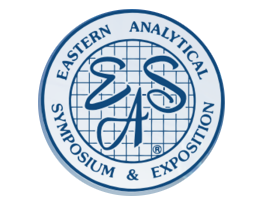Session Date: Tuesday, November 19, in the afternoon session
Presentation Title: Mass Spectrometry-Based Protein Footprinting: A Tool for Biophysics
Sponsored by Thermo Fisher Scientific

Biography:
Michael L. Gross is currently Professor of Chemistry, Medicine, and Immunology at Washington University in St. Louis. He is also the Principal Investigator of the NIH Mass Spectrometry Research Resource at Washington University. Professor Gross holds a BA degree from St. John’s University (Minn.) and a PhD degree from the University of Minnesota in Organic Chemistry. He was on the faculty of the University of Nebraska-Lincoln from 1968 to 1994, where he rose through the ranks to become distinguished professor. There he directed an NSF Center for Mass Spectrometry (1978-1994). His current research interests include the development of mass spectrometric methods for structural determination of biomolecules and biophysical properties of proteins, and Fourier transform mass spectrometry for accurate mass and higher performance. These efforts have led to the development of PLIMSTEX, a strategy for determining protein affinities by H/D exchange and FPOP, a method for fast footprinting proteins by reactions with various radicals. This work builds on his earlier research on peptide/metal-ion interactions, peptide fragmentation, sequence determination of unknown peptides and other biomolecules, and his collaborations in cancer research (modified DNA and DNA fragmentation) and immunology.
Earlier in his career, he probed new gas-phase ion chemistry including interactions of metal ions with biomolecules, distonic ions, radical cations, and formation of endohedral complexes of fullerenes. He discovered a new class of ion decompositions called charge-remote fragmentations in 1983. He worked during the late 1970s on the validation of the ultra-trace analysis of dioxins in environmental and biological samples, providing along with EPA collaborators, the first validation of a part-per-trillion analysis of organic materials. Starting in the late 1970s, both independently and in collaboration with C.L. Wilkins, he explored applications of FT ICR mass spectrometry in analytical chemistry. Out of this work came the first GC/MS experiments, new ion trap designs, the mass calibration law, and the first work in laser desorption FT ICR.
He has published over 530 publications and book chapters, and serves as the Editor-in-chief of the Journal of the American Chemical Society for Mass Spectrometry (1990–present) and coeditor of the Encyclopedia of Mass Spectrometry (with Richard Caprioli). He was also editor of Mass Spectrometry Reviews (1982–90). Dr. Gross has been awarded numerous national and international awards including the J.J. Thomson Medal for Service to International Mass Spectrometry (Foundation for International Mass Spectrometry) in 2006, Midwest Award for Achievements in Chemistry (American Chemical Society) in 2002, Field and Franklin Award (American Chemical Society) in 1999, and the Commonwealth of Massachusetts Pioneer Award with his contributions to dioxin analysis. He is a lifetime member of the Japanese and Indian MS Societies. Dr. Gross is also recognized as mentor to his graduate students as acknowledged by the Excellence in Mentoring Award (Washington University) in 2005 and 2002 and Outstanding Mentor Award (Washington University) in 2004 and 2001, and an Amoco Teaching Medal from the University of Nebraska-Lincoln. He has directed the research of over 100 graduate and postdoctoral students and staff of the two MS centers.
